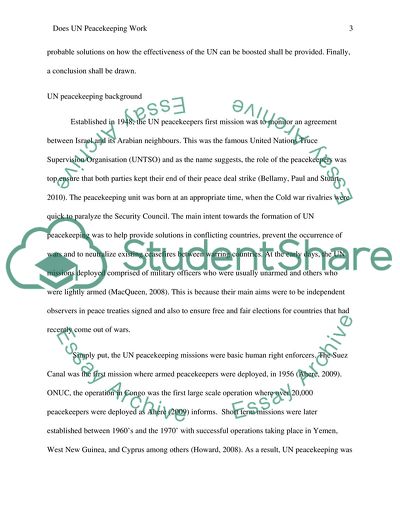Cite this document
(The United Nations Peacekeepers in African Countries Essay Example | Topics and Well Written Essays - 3000 words, n.d.)
The United Nations Peacekeepers in African Countries Essay Example | Topics and Well Written Essays - 3000 words. https://studentshare.org/history/1815761-does-un-peacekeeping-work-give-reasons-for-your-answer
The United Nations Peacekeepers in African Countries Essay Example | Topics and Well Written Essays - 3000 words. https://studentshare.org/history/1815761-does-un-peacekeeping-work-give-reasons-for-your-answer
(The United Nations Peacekeepers in African Countries Essay Example | Topics and Well Written Essays - 3000 Words)
The United Nations Peacekeepers in African Countries Essay Example | Topics and Well Written Essays - 3000 Words. https://studentshare.org/history/1815761-does-un-peacekeeping-work-give-reasons-for-your-answer.
The United Nations Peacekeepers in African Countries Essay Example | Topics and Well Written Essays - 3000 Words. https://studentshare.org/history/1815761-does-un-peacekeeping-work-give-reasons-for-your-answer.
“The United Nations Peacekeepers in African Countries Essay Example | Topics and Well Written Essays - 3000 Words”. https://studentshare.org/history/1815761-does-un-peacekeeping-work-give-reasons-for-your-answer.


